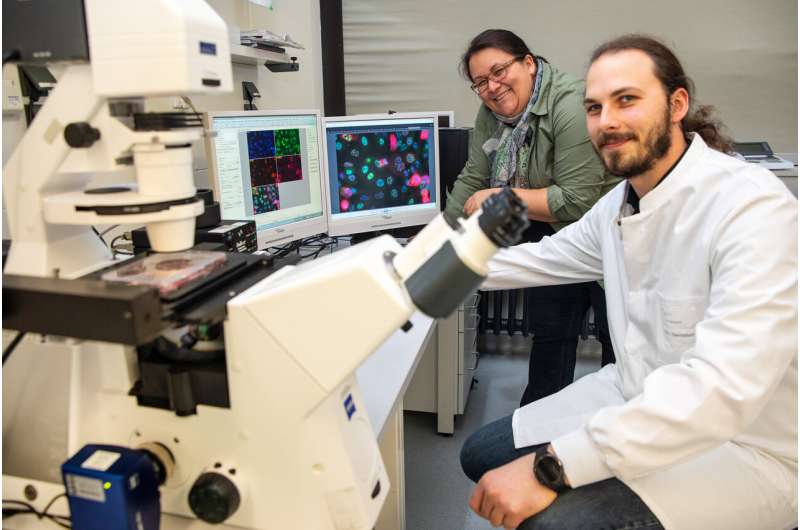How cells defend themselves against adenoviruses

How do human cells defend themselves against adenoviruses? The team of RESIST Professor Dr. Sabrina Schreiner from the Institute of Virology at the Hannover Medical School (MHH) has come a good deal closer to answering this question. The team has elucidated an important defense mechanism and thus laid the foundation for the development of new treatment options.
The research results, which were made possible through the RESIST Cluster of Excellence, were published in the journal mBio. The two first authors are Lilian Göttig and Dr. Christina Weiß from the Institute of Virology at the Technical University of Munich from Professor Schreiner’s research group there. The team of authors also includes Dr. Samuel Hofmann from the MHH Institute of Virology.
Neither specific therapies nor vaccination available
New treatment options against human adenoviruses are needed, as there are neither specific therapies against these viruses nor a vaccination for the general population. Adenoviruses can cause inflammation—for example of the gastrointestinal tract, the conjunctiva, the liver and the brain. These are usually harmless in otherwise healthy people, but life-threatening pneumonia can occur with certain types of adenovirus.
Adenoviruses can persist in the body and can also reactivate in certain situations. An adenovirus infection is particularly serious in people with a weakened immune system, for example. They can also die from such an infection.
Cells defend themselves with the protein Apobec3A
Professor Schreiner’s team has now found that human cells defend themselves against adenovirus infection with the help of Apobec3A. “We found a significant upregulation of Apobec3A during HAdV infection,” she says. The protein was already known to play a central role in defense against chronic hepatitis B virus infection. The researchers were also able to elucidate the defense mechanism: “Apobec3A changes the molecular labeling with the SUMO protein at important viral factors.” As a result, the replication centers necessary for virus replication become non-functional and the viruses can then no longer reproduce.
In addition, the team was able to find out that some of the currently 95 known different adenovirus types are more vulnerable than others. “A comparative sequence analysis revealed that some adenovirus types may have developed a strategy to evade Apobec3A-mediated defense,” says Professor Schreiner.
The results provide new insights into the interaction of the viruses and the host cell and expand the current view of how a host cell can limit infection. For the researchers, this is an important finding and a prerequisite for new therapeutic strategies and drugs against these viruses.
More information:
Lilian Göttig et al, Apobec3A Deamination Functions Are Involved in Antagonizing Efficient Human Adenovirus Replication and Gene Expression, mBio (2023). DOI: 10.1128/mbio.03478-22
Provided by
Medizinische Hochschule Hannover
Citation:
How cells defend themselves against adenoviruses (2023, May 11)
retrieved 12 May 2023
from https://phys.org/news/2023-05-cells-defend-adenoviruses.html
This document is subject to copyright. Apart from any fair dealing for the purpose of private study or research, no
part may be reproduced without the written permission. The content is provided for information purposes only.
For all the latest Science News Click Here
For the latest news and updates, follow us on Google News.

